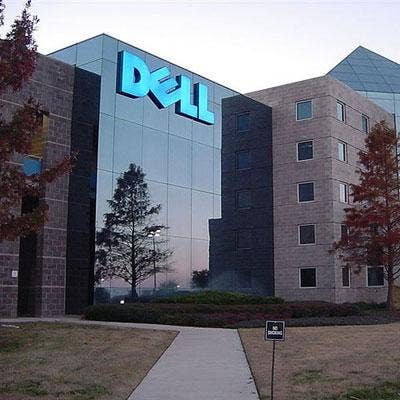5 Companies That Had A Rough Week

The Week Ending July 19
It's been a hot one in many parts of the U.S. this week, but the heat's really been on some leading IT and communications vendors. Topping a roundup of companies that had a rough week is Microsoft and the huge penalty it's paying for slow sales of its Surface RT tablet computer.
Also making the list this week are the latest hitches in Dell's efforts to go private, more cybersecurity concerns about a Chinese manufacturer's networking equipment, a DDoS attack on a major hosting services company, and the discovery of a major vulnerability in a telecommunications vendor's products.

Microsoft Takes $900 Million Write-Down For Surface RT Inventory
Microsoft's fourth-quarter earnings report this week included a whopping $900 million write-down for what it called "inventory adjustments" for the Surface RT tablet computer. The charge, which lopped 7 cents per share off Microsoft's earnings, is the clearest evidence so far that the company's Surface RT has been a bust.
In recent weeks Microsoft has taken steps to reduce its inventory of unsold Surface RT tablets, including cutting the price by $150, selling them to channel partners at heavily discounted prices at the Worldwide Partner Conference, and even giving them to teachers for free.
Until recently, Microsoft had been selling Surface tablets only through its own retail and online stores and through Best Buy, Staples and Walmart. Last month Microsoft granted the privilege of selling Surface to 10 large account resellers. But it hasn't said when it will begin selling them through its broader channel, a move that has upset the company's legion of channel partners.

Huawei Pressed In U.K. And Australia On Telecom Cybersecurity
China-based telecommunications giant Huawei is facing more allegations that its equipment could be used to provide cybersurveillance capabilities for the Chinese government.
This week the U.K. government confirmed to the BBC that it is probing the Cyber Security Evaluations Centre in Banbury, Oxfordshire, to assess possible cyberrisks related to Huawei's equipment. Also this week the former head of the CIA and National Security Agency told the Australian Financial Review that he believes Huawei is a "significant security threat" to both the U.S. and Australia.
The U.S. government has been scrutinizing Huawei's close ties to China's government and the security implications of Huawei providing U.S. carrier infrastructure. Last October a report from the U.S. House of Representatives Permanent Select Committee on Intelligence called Huawei a potential security risk because its products could be used to spy on U.S. citizens.

Dell Delays Shareholder Buyout Vote
Dell postponed this week's scheduled shareholder vote on whether to accept the move by CEO Michael Dell and his financial backers to take the company private.
Michael Dell and investment firm Silver Lake are hoping shareholders will vote for his plan to pay $13.65 per share and take the company private. But activist investor Carl Icahn and private-equity firm Southeastern Asset Management have made a counteroffer and are battling Michael Dell for control of the company.
The shareholder vote was scheduled for Thursday, but it was pushed back to July 24 -- a move the company said was necessary to give shareholders more time to submit their proxies. Partners said the delay could mean the deal is falling apart and Michael Dell doesn't have the votes he needs to win. If nothing else, the postponement means continued uncertainty about the company's future.

Researchers Reveal Way To Hack Into Verizon's Network
Serious weaknesses discovered this week in Verizon Wireless Network Extenders could be used by an attacker to eavesdrop on conversations on the cellular network or view text messages, photos and other data.
The flaws, discovered by researchers at iSEC Partners, are receiving widespread attention for their potential to allow hackers to bypass the authentication mechanism protecting cellphone networks.
The researchers will show how they can hack the Network Extender devices to intercept active voice, SMS and data traffic flowing through any cellphone connecting to the devices in a demonstration at the Black Hat 2013 security conference July 31.

DDoS Attack Behind Latest Network Solutions Outage
A Distributed Denial-of-Service attack Wednesday crippled the servers at hosting services firm Network Solutions, disrupting thousands of websites for several hours.
DDoS attackers overwhelm servers by flooding a company's pipeline with unwanted network packets. Herndon, Va.-based Network Solutions, which manages more than 6 million domains, said its network security team responded to the attack. In June, Network Solutions had its DNS servers hijacked and reconfigured to a malicious website after the company botched efforts to thwart another DDoS attack.
The outage is one of at least a dozen outages at cloud hosting providers impacting users this year. DDoS attacks are a common occurrence at hosting providers, e-commerce businesses and financial institutions. The volume, strength and length of attacks are increasing, according to a quarterly threat report issued this week by DDoS mitigation vendor Prolexic.